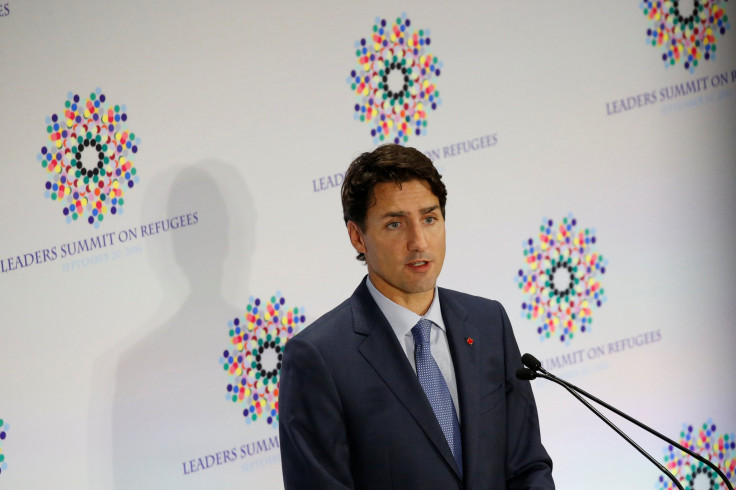Refugees In US Brave Snow To Walk Across Canada Border In Fear Of Trump

Refugees fearful of President Donald Trump's immigration policies have been braving freezing winter temperatures to walk across the border from the U.S. to Canada.
The Welcome Place refugee assistance agency in the province of Manitoba provided assistance to 91 claimants between Nov. 1 and Jan. 25, Reuters reported. That number was more than the agency typically helps in an entire year. Most walked into Canada across the freezing prairies along the border. Over the weekend, 22 refugees crossed the border on foot near Emerson, Manitoba, the Canadian Broadcasting Corporation reported. The Guardian said that one agency opened claims for 10 refugees in one day last week, a first.
"We haven't had something before like this," Maggie Yeboah, president of the Ghanaian Union of Manitoba, which assists refugees, told Reuters. "We don't know what to do."
Refugees were walking across the border and avoiding official border crossings because of a 2004 agreement between Canada and the U.S., advocates told Reuters. The Canada-U.S. Safe Third Country agreement has required refugees to apply for asylum in whichever of the two countries they arrive in first. This means that refugees were often rebuffed at the U.S.-Canadian border when trying to enter Canada.
“They’re not crossing at the actual point where there’s an immigration and customs offices,” Rita Chahal of the Manitoba Interfaith Immigration Council, told the Guardian. “They’re walking through prairie fields with lots and lots of deep snow. In Europe we’re seeing people in boats; now just imagine a prairie flatland and snow for miles and miles.”
Applications from refugees entering Canada by land increased 63 percent in 2016 compared to the year before, the Canada Border Services agency told the Guardian.
Trump proposed instituting "a total and complete shutdown of Muslims entering the United States" while he was on the presidential campaign trail last year. Shortly after taking office, he instituted a temporary "travel ban" on seven predominately Muslim countries. The ban prompted Canadian Prime Minister Justin Trudeau to post a message on Twitter that indicated Canada would welcome refugees.
To those fleeing persecution, terror & war, Canadians will welcome you, regardless of your faith. Diversity is our strength #WelcomeToCanada
— Justin Trudeau (@JustinTrudeau) January 28, 2017
© Copyright IBTimes 2025. All rights reserved.






















